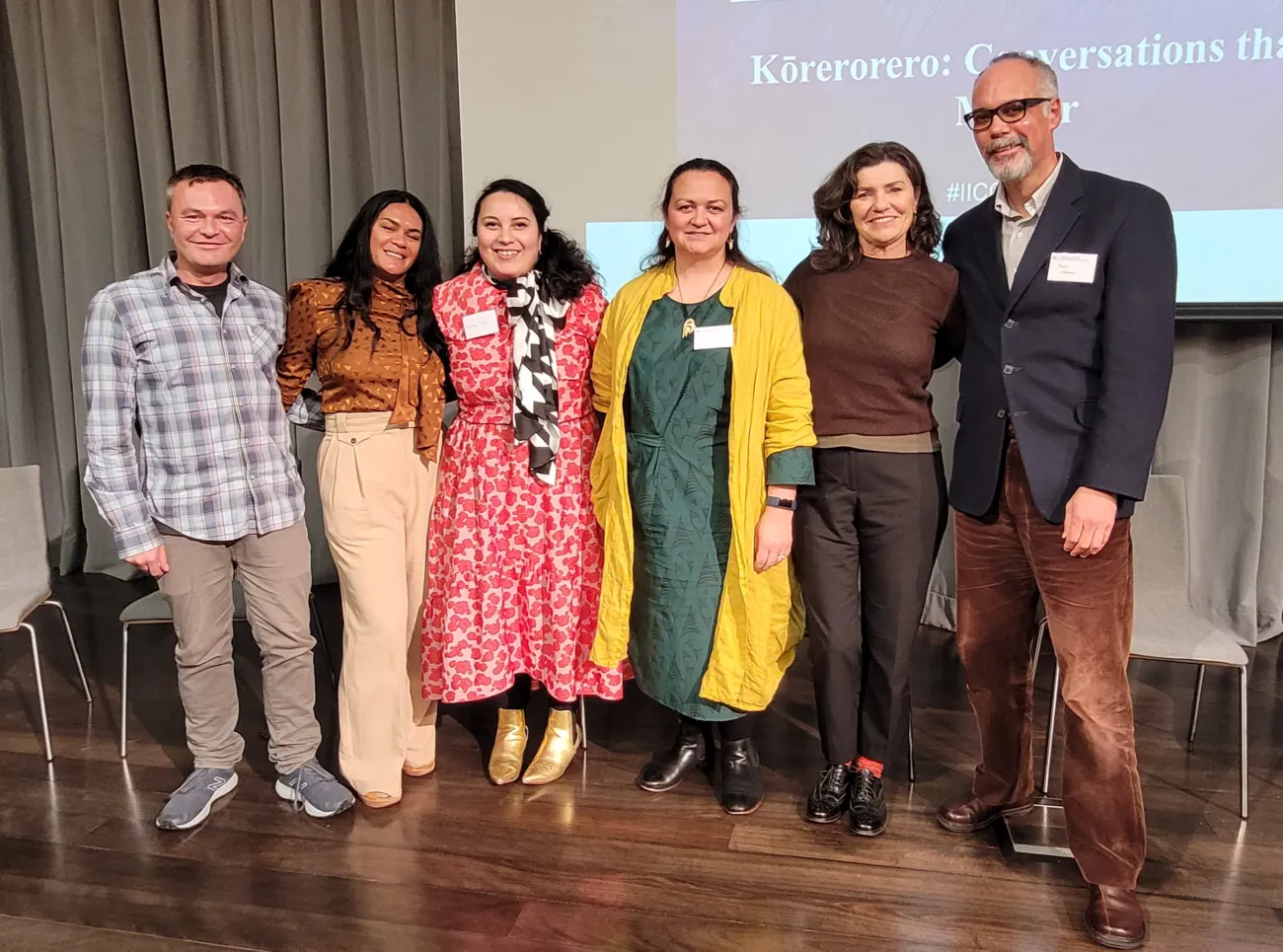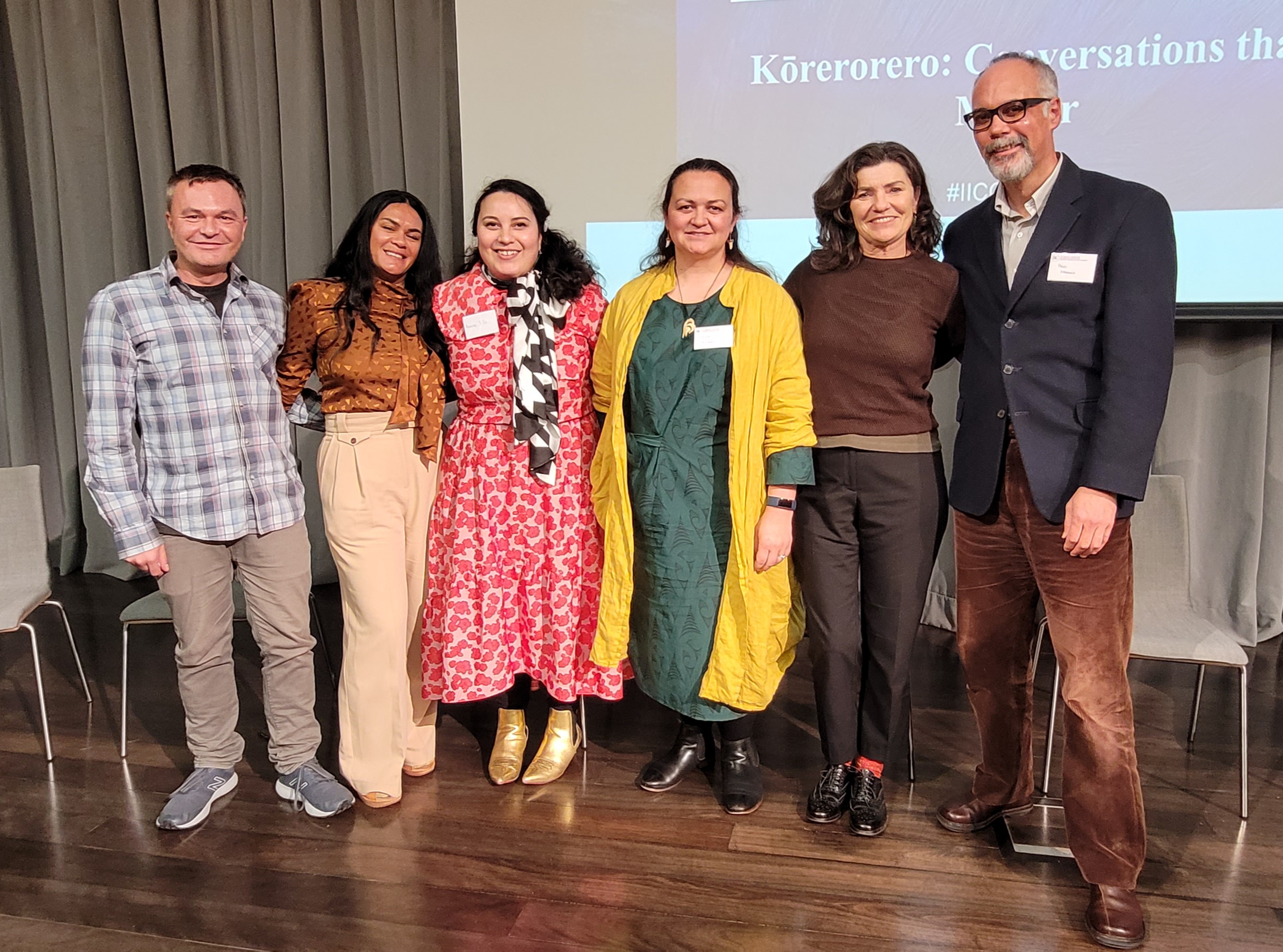IIC Dialogue
Submitted by sharragrow on 07 Sep 2022

Benjamin Francis Lew
Wednesday, IIC Dialogue: Kōrerorero: conversations that matter
Live and online from Wellington Tuesday 6 September, 4.30 to 6.30pm (NZST) A recording will be made available to all registered for the Congress following the event on our dedicated IIC Congress site. Join Māori conservators Rose Evans, Tharron Blomfield, Kararaina Te Ira, Erina McCann and Jade Hadfield for a discussion of the issues and themes that have influenced and affected their careers in conservation. The panel discussion moderated by Curator Māori Alexander Turnbull Library, writer, journalist, broadcaster Paul Diamond (Ngāti Hauā, Te Rarawa, Ngapuhi) will touch on topics such as working with taonga (here referring to heritage objects) carrying māturanga (cultural knowledge) overseas, the impact of historic trauma, ethical responsibilities to community, what you don’t learn at university and the blockages that there can be in the profession.
Kōrerorero: (verb or noun) a conversation.
After a day of education, decolonisation and community consultation, IIC delegates take a moment to review proceedings and the state of indigenous conservation.
A panel of 5 pre-eminent Māori conservators under the erudite hand of Paul Diamond, Curator Māori at the Alexander Turnbull Library, discussed some of the most critical issues facing conservation today, and the difficulties facing future generations of Māori conservators.
Panelists included (in alphabetical order as was Paul’s preference):
Tharron Bloomfield – Māori Heritage Advisor at Heritage New Zealand – gave thanks and paid homage to the ‘first hand’ of Māori conservators that came before him, the likes of Rose Evans, Vicki-Anne Hiekel, and Rangi Te Kanawa (all of whom were present).
Rose Evans – acknowledged the incredible formative role played by an older generation of Māori leaders such as Mawi Pōmare, Mina McKenzie, Te Aue Davis, whose vision for culture identified the need for Māori to be able to care for their own cultural material.
Jade Hadfield – State Library of Victoria, formerly of Museums Victoria and the Koori Heritage Trust – told us a powerful story about her family history, her iwi, and told us about the deep calling to work with taonga, while using institutions to achieve broader cultural goals.
Erina McCann – director of Tiaki Objects Conservation – spoke about the liberty that came with operating in private practice to use matauranga and tikanga in her approach to conservation practice.
Kararaina Te Ira – textile/objects conservator and director of Hokitika Museum – told us about the transmission of intergenerational knowledge inherent in Māori culture and the significance of tautiakitanga (heritage specialist working in indigenous cultures).

In the discussion that followed, the fundamental role that taonga Māori (Māori cultural material) play in binding together culture and community filled the room. Perspectives varied on certain issues, such as what role Australia, with its ‘whole other world of Museums’ (Paul Diamond) and specialist conservation higher education courses, had to play for the next generation of Māori conservators; whether taonga Māori could be appropriately cared for overseas, and whether museums could truly be fully decolonised (picking up from Irit Narkiss’ claim to the contrary in Session 2 today). While all panelists acknowledged the collaborative role that international institutions had to play, there was a resounding feeling best expressed by Rose Evans, in that Aotearoa is now past collaboration and moving into self-direction for its own cultural material and welfare.
The local subject matter and personal atmosphere elicited questions from the audience in Wellington. Panelists acknowledged the financial, familial and community difficulties with overseas study, and sought to redress the way the institutions treat young Māori conservators: ‘it’s the sector that needs to change, not us’ (Jade Hadfield). Some principles were discussed regarding how to best support Māori in the sector, as well as how to best incorporate learnings into existing policy and governance. The strong ethic of unity and care that shone through the panel yields abundant insight into what Westerners stand to learn from mātauranga Māori.
Author:
Benjamin Francis Lew is a young conservator and researcher with a special interest in education and indigenous epistemologies.
Image captions:
Photo of Panel and Chair from Kōrerorero: Conversation that Matter on Tuesday Afternoon. Speakers include (left to right): Tharron Blomfield, Jade Hadfield, Kararaina Te Ira, Erina McCann, Rose Evans, Paul Diamond (chair). Photograph by Jane Henderson